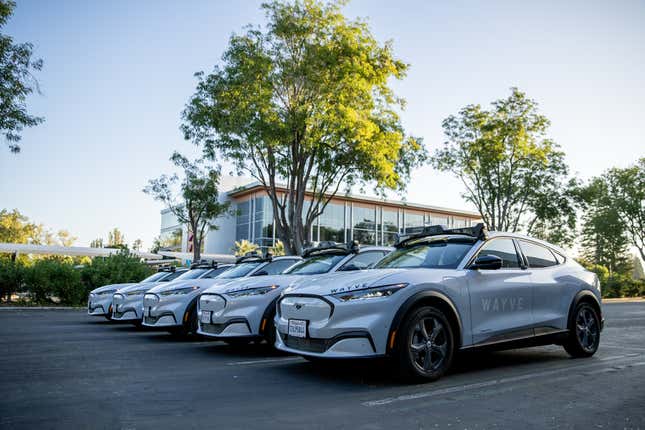
A London-based autonomous vehicle startup backed by Uber and Softbank is finally going international.
Wayve on Wednesday said it would begin testing its self-driving cars on roads in San Francisco and in California’s Bay Area, marking its first on-road trials outside of the U.K. It’s also opening an office in Sunnyvale, right in the “true heart” of Silicon Valley.
The company has conducted trials on public roads in the U.K. since 2018, the year after it was founded. In May, the U.K. passed a law outlining standards for the rollout of autonomous vehicles in the country by 2026.
“We are now testing our AI software in real-world environments across two continents,” Wayve CEO Alex Kendall said in a statement. “San Francisco’s unique driving conditions offer rich data insights that will be crucial in further developing a global AI platform for automotive customers.”
The announcement comes just two months after ride-hail service provider Uber said it would join Wayve’s Series C fundraising round, although it didn’t provide an idea of how large that investment would be.
Before Uber’s involvement, the startup had raised $1.05 billion in that round, which was led by Japanese investment bank Softbank and joined by Microsoft and Nvidia. The seven-year-old company had raised a $200 million Series B in 2022 and a $20 million Series A in 2019.
Wayve’s self-driving vehicles are expected to eventually become available on Uber’s network in multiple markets around the world, the companies said in August. Wayve had previously said that its Series C funding will help it expand into new markets, attract global talent, and build geographically diverse data assets.
“Launching our U.S. testing program in California deepens our collaboration with key partners like Microsoft, NVIDIA, and Uber,” Kaity Fisher, Wayve’s vice president of operations and commercial, said in a statement. “Their support in cloud computing, silicon, and mobility services will accelerate the creation of a global ecosystem that will bring our AI-driving technology to automotive partners.”
Wayve’s vehicles run on what it calls “embodied AI,” which it describes as the “next frontier of AI innovation.” The technology is intended to allow vehicles to interact with and learn from human behavior in real-world environments. Wayve says its technology has the potential to enhance the safety of autonomous vehicles, which — if perfected — can make the roads much safer for humans.
Its launch in San Francisco comes as the city has become a hub for self-driving cars. Vehicles operated by Google-backed Waymo are a common sight now in the city, where it is the only publicly available robotaxi service. Amazon-backed Zoox has started offering journalists rides in its vehicles in a nearby suburb and Las Vegas.
Uber is working with both Waymo, Wayve, and General Motors’ Cruise, which halted its operations in San Fransisco last year following a safety incident. The company has since returned to the Bay Area with a driver behind the wheel.